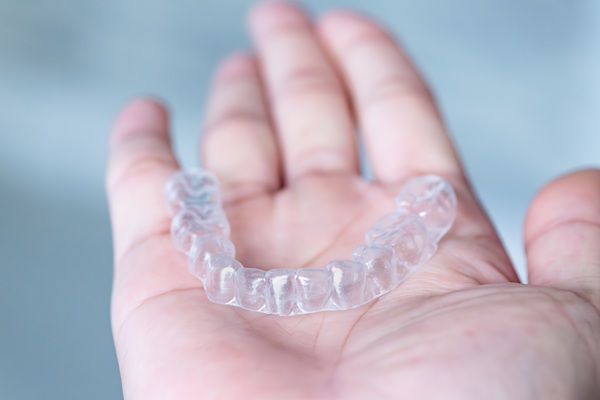 In many situations, dentists successfully utilize dental sealants to protect a patient's teeth from harmful decay. This simple preventative treatment is typically recommended for younger children but can also be helpful for adults as well. In fact, some dental professionals suggest sealants for adults with healthy teeth approaching middle and advanced age. While a wide variety of people may be excellent candidates for this procedure, it is important to understand the intended use and appropriate situations for a more successful outcome.
In many situations, dentists successfully utilize dental sealants to protect a patient's teeth from harmful decay. This simple preventative treatment is typically recommended for younger children but can also be helpful for adults as well. In fact, some dental professionals suggest sealants for adults with healthy teeth approaching middle and advanced age. While a wide variety of people may be excellent candidates for this procedure, it is important to understand the intended use and appropriate situations for a more successful outcome.
Candidates for this procedure
According to the American Dental Association, dental sealants can reduce tooth decay by as much as 80%. Due to the simple application technique and overall durability, sealants are manageable for all ages. A dentist may recommend this treatment to protect a person's teeth as long as they meet the requirements.
Children
When a child's permanent teeth begin to grow in, cavities become a more serious concern. Kids are less likely to perform adequate oral hygiene and are more likely to consume sugary foods and beverages that can lead to decay. Molars are especially prone to cavities because of the deep grooves that can trap and hold bacteria. As a result, many dentists recommend sealing the molars of children once they appear above the gum line, around age 6 and again around age 12.
Adults
Once a person develops healthy oral hygiene practices and understands the health benefits of a nutritious diet, the risks of tooth decay can diminish. However, there are several reasons a dentist may suggest sealants to an adult patient. Individual tooth shape and structure may be particularly prone to decay. In addition, saliva production tends to drop with age and can be exacerbated by certain medications. Adequate saliva production plays a vital role in fighting bacteria and disease in the mouth. Sealants can help protect healthy teeth in such situations.
Understanding dental sealants
This treatment is simple to apply and easy to maintain. However, it is important to note that sealants are not recommended for implants or teeth with these issues:
- Existing decay.
- Fillings.
- Crowns.
- Bridges.
Most professionals recommend reserving this approach for healthy, natural teeth.
Application and function
First, a dentist thoroughly cleans the tooth and uses an acidic gel to create a suitable base for the sealant to adhere to. Once the tooth is prepped, a thin layer of composite plastic material is applied and shaped over the area. Finally, a blue dental curing light is used to harden and set the sealant in place. The entire process is painless and noninvasive.
The artificial surface helps prevent food particles, liquids and bacteria from accessing the deep crevices of the tooth. As a result, decay is less likely to occur, enabling the patient to maintain oral health with proper care. While this simple covering is not necessary for some adults, some can benefit from the added protection.
Check out what others are saying about our dental services on Yelp: Dental Sealants in San Antonio, TX.
Conclusion
While dental sealants are more common among school-aged children, people of all ages can utilize this type of preventative care. A dentist can help determine if this procedure should be added to a patient's treatment plan.
Request an appointment or call Rim Dental at 210-693-1939 for an appointment in our San Antonio office.
Related Posts
Children need every preventive measure available to keep their oral health in top condition, which can include dental sealants. When it comes to children’s dental health, tooth decay remains the leading problem affecting children. The dentist uses dental sealants to protect a child’s teeth from the harmful effects of cavities. Continue reading to find answers…
Besides good oral hygiene and regular dental checkups, dental sealants are another preventive measure that protects the teeth against decay. Tooth cavities or decay remains the most common childhood disease in the United States. Despite the importance of dental sealants, many parents do not know about their purpose and how they work to protect a…
If patients are suffering from missing teeth or teeth that need to be removed, dentures can be one option for allowing them to continue to be able to use their mouth properly. Here are a few changes a patient should expect to make as part of adjusting to new dentures.Depending on the needs of the…


